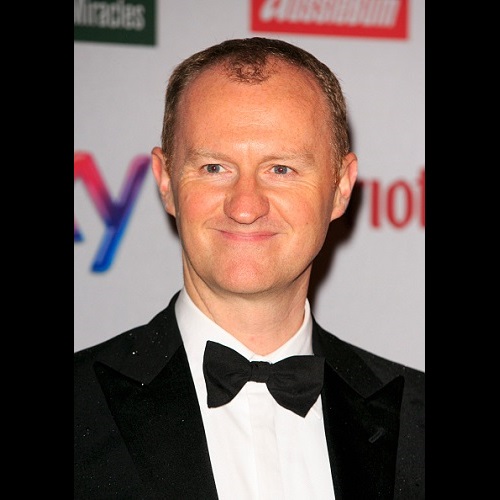Mark Gatiss reveals what went into setting Sherlock Holmes in a technological era.
The task of modernizing Sherlock Holmes in today's technological era is not an easy one. Krishna Bahirwani speaks to Mark Gatiss to find out how he took on the challenge while serving multiple roles in the creation of today's Sherlock.
 Getty Images
Getty Images
How much psychological research went into making Sherlock?
Oh, a lot . We talked a lot about how to position Sherlock Holmes and Dr Watsonin the modern day, How he would be percieved, what sort of person he was. I think, basically, he is the the same as the 19th century Sherlock but a lot of things have changed since then, a lot of things have been diagonalized . I think you can read between the lines in Arthur Conan Doyle, Sherlock is definitely depressive, there are long periods of time he sits on the sofa and doesn't move, he's bi-polar,.He's probably on the autistic spectrum. We did think a lot about all of that, about how people would percieve him. They would have just thought he was odd in the 18th and 19th century.
What was it like writing and acting in the same show?
It's great because if I want to change a line I can just do it, without having to ask for anyone's permission.It's good, I mean I've always done it from The League of Gentleman onwards. I'm pretty familiar. You can move around from behind the camera to in front of it and keep an eye on the whole thing. I am there virtually every day of the shoot anyway as an executive producer and it just helps.
Why do you release such few episodes every year?
Well, because we cannot do it any other way. The original plan was to make six, hour-long episodes. We made the first one, which sort of became a pilot, and the BBC said they would commission it if we made three nintey minute episdoes really because of a series called Wallander, which became a really big success for them. Then it became an absolute phenomenon making it impossible to do it any quicker and now thats how we do it, three episodes every two years or so.
What role has technology played in the modernization of Sherlock?
Well a big part in the sense that we were from the beginning trying to find equivalences. Originally Sherlock sent a lot of telegrams, texting became the equivalent. There are things that have become very familiar about policework , really the thing is Sherlock's world is a hieghtened version of ours , its not just a grim police procedural, its an adventure series so the villian's are larger than life, the golem in series one is a 7 ft 2" bald assasin , if it was real life he would be a gangster who smashes peoples heads, thats not our show. We bought in a lot things, text on the screen and things like that, he uses his phone. The original sherlock holmes had all the information orgnaized in his head now its all on his phone.
What has been the most challenging part of your work with Sherlock so far?
It's hard to write as it gobles up story, a ninety minute script is routinely a hundred and forty pages because it moves so quickly, it's massive and it shouldnt be but it just moves so quickly . Just trying to get everyone to come back to do it is hard even though everybody is so keen about it.
How does technology affect the writing aspect of Sherlock?
We try to find new visual ways of what is going on in Sherlocks head and that has been copied even by a lot of shows. People on the team come up with new toys and say look at this and its like that. New cameras, new lenses, are brought in, we got a new camera coming up for the special. It is so new that there are only about three around. It's amazing, it's exciting
How challenging is it to write or portray a character that you want the audience to perceive as intelligent?
You have to sort of try and be the right kind of clever, the deductions are definitely the hardest thing . If you think of a good one, you have to write it down instantly, its a bit like a magic trick, you have to explain enough of it to make it work, but if you explain everything it ceases to be magic.
No comments:
Post a Comment